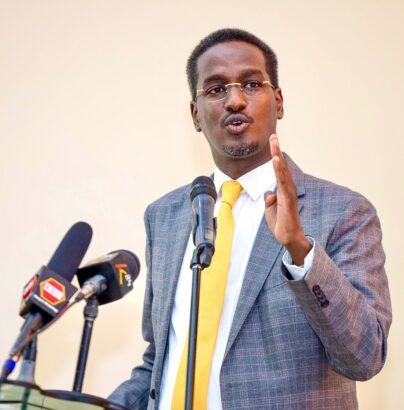NAIROBI Kenya February 22 -Institutions of higher learning have been directed to conduct regular security audits, vulnerability and threat assessments for the safety of the students and staff.
The move follows a surge in cases of insecurity within and around such institutions that have resulted into deaths, injuries and losses.
As a result, the heads of security have been directed to develop comprehensive emergency response plans that outline protocols for various scenarios, including natural disasters, student unrest, medical emergencies, and active shooter incidents.
The Director of Private Security Regulatory Authority (PSRA) Fazul Mahamed on Thursday said the colleges and communities around them remain prime targets for criminal enterprise, adding that the measures would help address existing security gaps specific to their environment.
“Regular security audits, vulnerability and threat assessments must be conducted to identify potential security threats, and existing security gaps specific to the campus environment,” he said.
The institutions are also expected to install access control systems, CCTV and security surveillance cameras, perimeter fencing, and lighting to deter unauthorized access and real time monitor campus activities.
Mahamed made the remarks at the Kenya School of Government in Nairobi when he met heads of security of universities, colleges, polytechnics and other institutions of higher learning across the country.
The meeting was to deliberate on strict security protocols that will enhance the safety of students, staff and the communities in which these institutions are domiciled.
“When it comes to the safety and security of our universities and institutions of higher learning, there can be no room for compromise or ambiguity,” he said.
He added: “You must also fully understand the complexities of the terrain you operate in.”
The Director noted that the educational establishments more often than not have inadequate levels of security, improperly trained security officers and response teams, and a lack of security culture.
“Whilst it is of critical importance our academic institutions do not have a siege mentality and implement damaging levels of security, you have a duty of care to students and staff to ensure everything that can be done, within reasonable cost limits, is done to the highest possible standard,” he told the officers.
“The institutions must implement a holistic approach to security management to create a safe environment that is conducive to learning, research, and personal development,” he added.
Already, there is a nationwide security vetting, training and licensing of all in-house security officers, contracted private security officers and all other officers offering security services, be they employed by institutions of higher learning or otherwise engaged as private security service providers.
According to the Private Security Regulations Act, no person should engage in the provision of private security services unless that person has undergone mandatory security vetting, training and licensing.
The security heads have also been directed to identify security incidents within the vicinity over the past 12 months, deconstructing the findings into incident type (shooting, kidnapping, criminal activity), its impact (casualty and fatality count), target (students, staff, lecturers, communities, infrastructure), period of day and key word associations.
“This will provide the institutions with rapid trend analysis of the areas surrounding its campuses,” he advised.
Want to send us a story? Contact Shahidi News Tel: +254115512797 (Mobile & WhatsApp)


